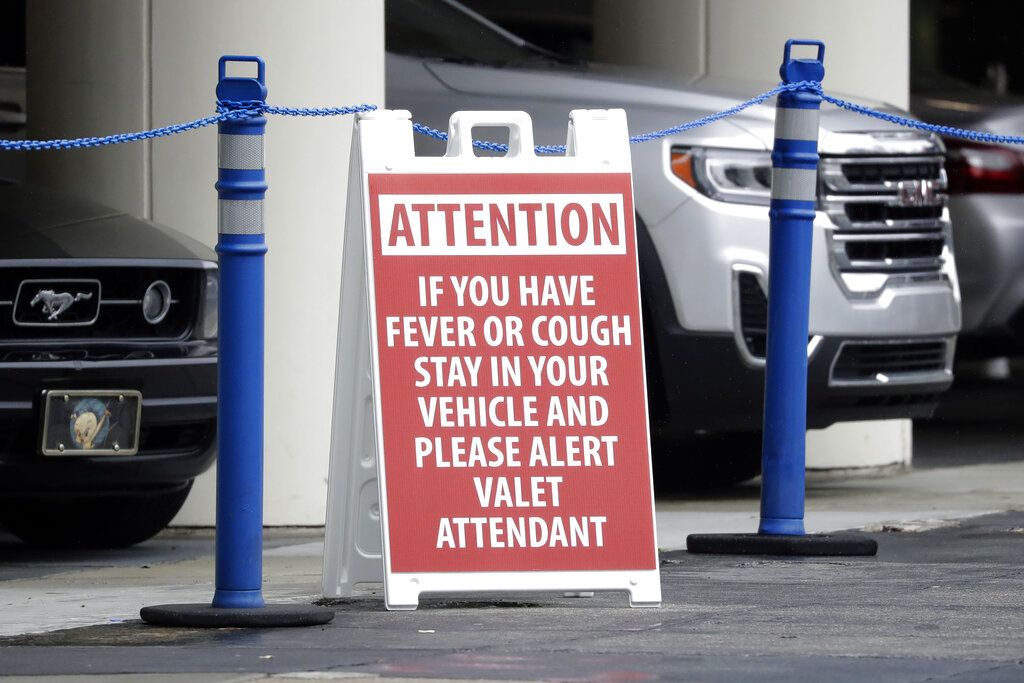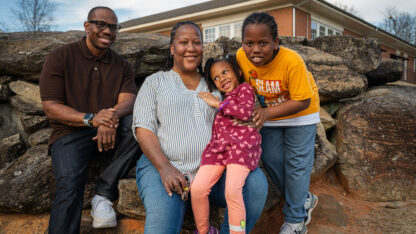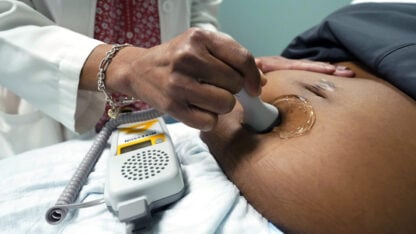High Rate Of COVID-19 Hospitalizations Worries Emory Doctors

A sign outside the emergency entrance to Emory Hospital advises people with coronavirus-like symptoms to remain in their vehicles and wait for an attendant to help in March in Atlanta.
John Bazemore / Associated Press
Emory Health officials warn if more isn’t done to reduce the spread of COVID-19 now, hospitals could get overwhelmed with patients.
Jon Lewin with Emory Health System has this sober assessment of the current condition in Atlanta.
“There’s been a marked increase in hospitalizations throughout metro Atlant, and at Emory Healthcare we’ve seen an almost doubling of our inpatients in the last week,” said Emory Health System CEO Jon Lewin.
This increase comes after Emory had seen a 66% reduction of cases in early June. Health officials have traced much of the current outbreak to Memorial Day weekend. He says this current quick rise is similar to early March, but the patients are younger.
“We’re also seeing a marked increase in our LatinX patients, ” Lewin said.
At Emory, the proportion of Latinos among COVID-19 patients has grown three-fold, he said. More than 1,500 COVID-19 patients are hospitalized across Georgia. That’s the highest since May 1, when the state started keeping such records.
“We are on a trajectory like we’re seeing in Houston, like we’re seeing in Arizona that brings us in metro Atlanta toward high concern for overwhelming our health system, yet again,” Lewin said.
But we’re not there yet, because there’s often a two week lag time between getting infected and the need for hospitalizations. Care has improved for COVID-19 patients and outcomes are getting better, but Lewin worries that care could be compromised if hospitals run out of bed space.
“We don’t want to become another New York City. We saw what happened there when things were overwhelmed,” Lewin said.
Statewide just 22% of critical care beds are currently available. Lewin worries too many people will not be vigilant enough this 4th of July weekend, which could burden hospitals even more in coming weeks. And while fewer people are dying from the disease now, with case rate growing so rapidly death rates are likely to follow.
“Death, unfortunately, lags hospitalizations by about 2 weeks, so what we’re seeing now in increase in hospitalizations sadly is going to mean increase in death in the next 2 or three weeks. There is no way that won’t be true,” he said.
Health officials say until a vaccine is developed only social distancing, mask-wearing and hand washing can help curb the amount of COVID-19 cases in a community over time.








